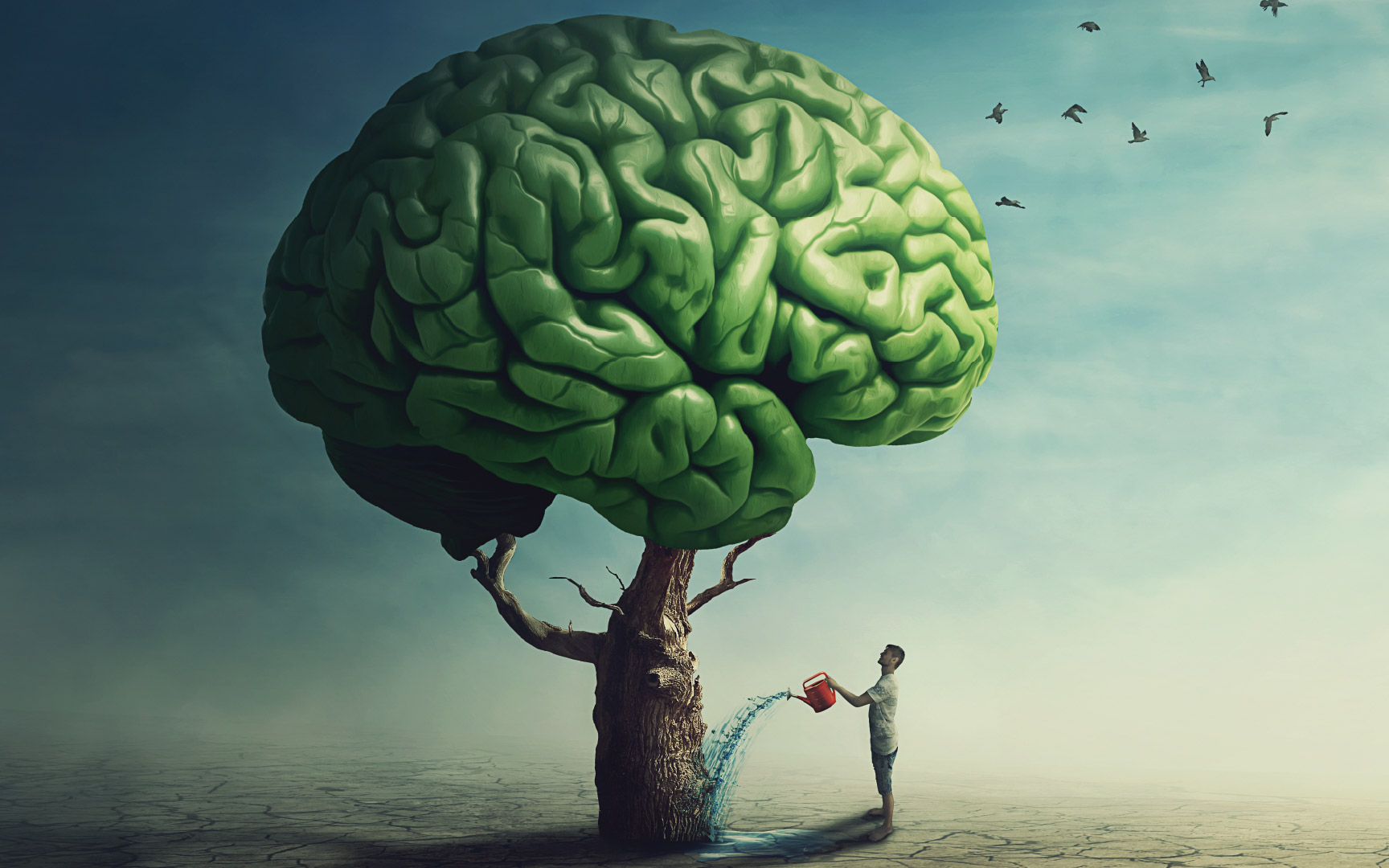Ever wondered why some people stay sharp well into old age? Others struggle with memory loss. The answer is in taking care of your brain.
Brain health is more than just keeping your memory sharp. It’s about living a lifestyle that boosts your brain. Your daily habits can greatly affect your brain’s performance and health.
Think of your brain as a powerful muscle that needs regular exercise. Making small changes in what you eat, how you move, sleep, and mentally engage can make a big difference.
Key Takeaways
- Brain health is influenced by lifestyle choices
- Cognitive function can be improved at any age
- Mental wellness requires a holistic approach
- Simple daily habits can enhance brain performance
- Proactive brain care prevents cognitive decline
Sharpen your focus naturally and step into mental clarity. Discover how you can elevate your performance, so act now to learn more today.
Understanding Brain Health and Cognitive Function
Our brain is amazing and can change a lot over our lives. Neural plasticity helps our brain adapt, learn, and handle new experiences.

The brain keeps changing itself, making new connections and adjusting old ones. This lets us learn new things, remember, and stay sharp as we get older.
The Science of Brain Adaptability
Our brain’s ability to change and reorganize is key to thinking well. Studies show our brain stays flexible, even as we age. This flexibility helps us learn, adapt, and stay mentally sharp.
Key Components of Mental Agility
Several important parts help us think well. Memory retention, focus, solving problems, and quick thinking are all vital. These work together to keep our minds sharp and help us deal with daily challenges.
Brain Changes Through Different Life Stages
Getting older doesn’t mean our brain has to get worse. While some connections may fade, our brain can find new ways to work. Keeping our mind active, learning new things, and staying healthy can help our brain at any age.
Essential Nutrients That Support Brain Health

Nutrition is key to keeping our brains working well. Foods that boost brain health are vital for our mental sharpness. Knowing which foods help our brains stay healthy is important.
Omega-3 fatty acids are superheroes for our brains. You can find them in fatty fish like salmon, sardines, and mackerel. They help our brain cells and reduce inflammation, boosting our memory and thinking skills.
Eating foods rich in antioxidants is also good for our brains. Blueberries, dark chocolate, and leafy greens are great choices. They fight off brain damage and keep our brain cells healthy. Vitamins B12, D, and E are also important for our brain’s connections and performance.
Here are some foods that are good for your brain:
• Walnuts
• Avocados
• Eggs
• Turmeric
• Green tea
Experts say eating a variety of foods is best for brain health. By choosing the right foods, we can keep our brains sharp and may even slow down mental aging.
Unlock better memory, clearer thinking, and a brighter mindset. Start your journey toward cognitive vitality and find out more right away.
Physical Exercise and Its Impact on Mental Clarity
Your brain needs movement as much as your muscles do. Exercise is not just a trend; it’s proven to boost brain health. It keeps your body fit and sharpens your mind.
Aerobic activities are great for your brain. They increase blood flow and help grow new brain connections. Walking, swimming, cycling, and dancing are perfect for both body and mind.
The Neuroscience of Movement
Exercise links physical fitness to brain health. It releases chemicals that improve mood and memory. Studies show it can fight off brain decline as we age.
Exercise Routines for Mental Fitness
Experts say you need 150 minutes of moderate exercise weekly. You don’t have to run marathons. Brisk walks, jogging, or dance classes are great for your brain. The most important thing is to enjoy it.
Begin slowly and be kind to yourself. Every step you take helps keep your mind sharp and strong.
Sleep Habits That Enhance Cognitive Performance
Quality sleep is key for brain health. Your brain works hard at night, sorting memories and removing toxins. This shows how sleep and brain health are closely linked, making good sleep habits vital for mental health.
Adults need 7-9 hours of sleep for the best brain function. Deep sleep helps your brain solidify memories and get ready for the next day. Regular sleep patterns keep your mind sharp and boost brain performance.
Creating a soothing bedtime routine is important. Make your bedroom calm, cool, and dark. Avoid screens and heavy meals before bed to sleep better.
Pro tip: Keep a regular sleep schedule, even on weekends. This keeps your body’s clock in sync and supports brain health over time.
Good sleep habits are an investment in your brain. They help with information processing, memory, and keeping your mind sharp. Even small changes in your sleep routine can make a big difference in how well you think.
Mental Exercises and Brain-Training Activities
Keeping your brain sharp needs regular mental workouts. Brain training is more than just solving puzzles. It’s a way to keep your mind sharp and prevent mental decline. Doing specific brain exercises can improve memory, solve problems better, and make your mind quick.
Memory-Boosting Games and Puzzles
Crossword puzzles, Sudoku, and memory games are great for brain training. They make your brain work harder and get better at thinking. Now, there are many digital apps and websites with brain games to help you.
Learning New Skills for Neural Growth
Trying to learn something new, like a language or a musical instrument, is very good for your brain. Neuroplasticity lets your brain make new connections when you try something new. You can take online courses, watch tutorials, or join workshops to keep your brain growing.
Social Interaction as Mental Exercise
Brain exercises aren’t just for solo activities. Talking with others, joining groups, and being part of teams also exercises your brain. Being in community groups, book clubs, or team activities keeps your mind flexible and sharp.
Stress Management for Optimal Brain Function
Stress can harm your brain’s performance. It’s key to learn stress reduction techniques for your brain’s health. Chronic stress can weaken neural connections and hurt your brain’s function.
Mindfulness is a strong tool against stress. Meditation and deep breathing can lower cortisol, the stress hormone. Just 10-15 minutes a day can improve your brain’s pathways and emotions.
Building cognitive resilience comes from managing stress. Simple methods like muscle relaxation, guided imagery, and exercise can change how your brain handles stress. Creating a stress reduction routine builds mental strength and flexibility.
Try activities that naturally lower stress, like yoga, walks in nature, journaling, or creative hobbies. These not only reduce stress but also boost brain adaptability and clarity.
Focus on stress reduction for your brain’s health and performance. A calm mind is a powerful one.
Conclusion
Keeping your brain healthy is a lifelong journey. It’s not just about one big effort. It’s about making small, smart choices every day.
Good nutrition, regular exercise, mental challenges, and managing stress are all important. They help keep your brain sharp. Knowing this helps you take care of your brain in a big way.
Your brain is amazing and can change and grow. By using the tips from this article, you can build a strong base for your brain’s health. Remember, being consistent and mindful is key to keeping your brain clear and healthy for life.
Begin today by adding these brain health tips to your daily life. Your future self will thank you for it. Start this journey of brain care with excitement and dedication.





